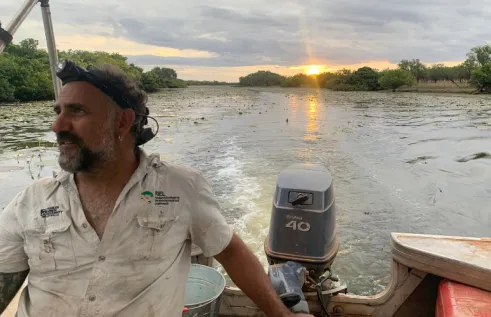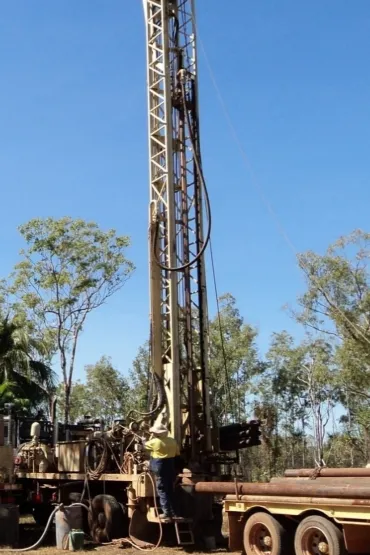RIEL seminar series
The melioidosis agent Burkholderia pseudomallei in the environment of the Top End
| Presenter | Dr Mirjam Kaestli | |
|---|---|---|
| Date/Time |
to
|
|
| Contact person | E: riel.outreach@cdu.edu.au | |
| Location | CDU Casuarina Campus Yellow 1.1.39 and online | |
| Open to | Public | |
Melioidosis is a severe infectious disease affecting humans and animals in the tropical belt worldwide. It is caused by the bacterium Burkholderia pseudomallei, which naturally occurs in soil and water in endemic regions. B. pseudomallei is an often-overlooked opportunistic pathogen which is estimated to account for more than 80,000 deaths a year globally, predominantly among poor agricultural workers in low to middle income countries. It is endemic in Northern Australia with an average of 52 cases and 4 deaths each year in the Top End. This talk will provide an overview of what we have learnt about its habitat in the environment of the Top End with a focus on water. We dug beyond the surface and also looked at its occurrence in groundwater and bore drills, and we will discuss the challenges water suppliers in Northern Australia face to manage its occurrence in the source of drinking water.
Dr Mirjam Kaestli is a microbial ecologist working in the Environmental Chemistry and Microbiology Unit (ECMU) at RIEL and the melioidosis research group at Menzies School of Health Research. Her current research focuses on source tracking of microbial signatures in water, the microbiota in drinking water and its interactions with engineered systems as well as the occurrence of opportunistic pathogens in drinking water. The latter is with a focus on the melioidosis agent Burkholderia pseudomallei. Mirjam has 17 years’ experience in exploring the habitat of B. pseudomallei in the environment of the Top End including in soil, water and plants.
Related Events

STATE OF THE DIS-UNION: Media Literacy in the age of AI
The CDU Library is hosting a free panel discussion featuring Northern Territory journalists who will discuss media literacy, truth, and storytelling in the AI era. Attendees can learn how AI is transforming media, ask questions, and improve their understanding of navigating information in today's landscape.
Read more about STATE OF THE DIS-UNION: Media Literacy in the age of AI
HDR Conference paper and article writing
This workshop supports HDR candidates in developing strong academic writing skills for both conference presentations and journal publications. Participants will learn how to structure a compelling conference paper, craft clear and effective academic prose, and transform research findings into publishable articles.
Read more about HDR Conference paper and article writing
Trophic dynamics of free-flowing tropical rivers
Colton Perna's PhD research explores how river flows and flooding shape freshwater fish communities in tropical rivers, using fatty acids to track how hydrology influences food webs and nutritional pathways. His findings highlight the critical importance of river flow and floodplain connectivity in sustaining productive aquatic ecosystems.
Read more about Trophic dynamics of free-flowing tropical rivers
